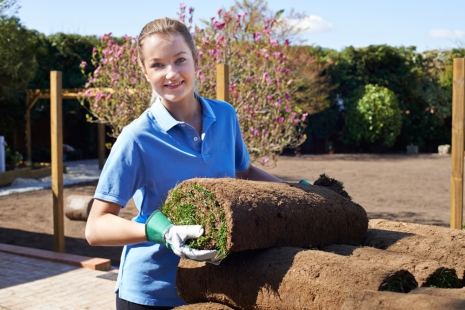Work experience is gaining experience of what working life is like. Find out how to get the work experience you need to get into the job you want.
Work experience is usually unpaid and short term. It can involve:
- Work shadowing - being in the workplace and watching what staff do everyday
- Work activities and tasks – trying out the job and learning new skills
- Work trial – using skills you already have in the workplace so an employer can decide whether to employ you. You can also use a work trial to see if a job suits you
You can do work experience at any age.
Why is work experience important?
Work experience is important because:
- Employers value experience and often ask for it on job vacancies. If you haven’t worked before or have been out of work for a while, work experience is a good way to get experience
- It can help you find out more about what type of work you like and the careers that interest you
- You can learn what skills are needed in the workplace and discover what its like being in work
Find employers who offer work experience
You may need to find work experience yourself. This involves asking your contacts, including friends and family if they know of anyone willing to give you work experience in their company.
Use online job websites and take a look at our finding jobs online page to help you find employers who might offer work experience. Write a covering letter / email to companies explaining that you are seeking work experience and send them your CV.
Some larger employers offer work experience opportunities. They give information on how to apply through their websites. To help get you started, opportunities include:
- Adra
- BAE Systems
- BBC
- Cardiff Council
- Carmarthenshire County Council
- HSBC
- Hywel Dda University health Board
- MBDA
- Natural Resources Wales
- NHS
- Pembrokeshire Coastal Forum
- Pembrokeshire Coast Wales
- Renishaw
- Rhondda Cynon Taf County Borough Council
- Senedd Commission
- Transport for Wales
Visit the National Work Experience Week website to see more companies who offer work experience in the UK.
Work experience through programmes and schemes
Other places to gain work experience opportunities are through schemes and programmes. Eligibility criteria usually apply to access programmes.
Schemes and programmes include:
- Jobs Growth Wales+ - you can apply for Jobs Growth Wales+ if you are aged between 16-19, live in Wales and are not in full-time education, employment, or training. Work trials and work placements are part of the programmes
- Job Centre Plus – if you are on Job Seekers Allowance (JSA) or Universal Credit you can get work experience through Job Centre Plus
- Careers Wales - a work experience scheme may be available for pupils in year 10 and 11 who are at risk of leaving education
Search Support Finder to find other programmes which may offer work experience.
Virtual work experience
Virtual work experience takes place online, and you work remotely through your computer or other device. To do virtual work experience you need a good internet connection and device.
Virtual work experience may include:
- Virtual tours of the company
- Watching videos about what its like to work in a job or industry
- Question and answer sessions with the employer
- Being given work to complete
- Attending online meetings
- Training opportunities
Some virtual work experience opportunities cost, but others are free. A sample of the free opportunities aimed mainly at students include:
- Forage – provide free job simulations by different companies in a wide variety of jobs and industries
- Springpod – 68 virtual work experience programmes including rail, insurance, engineering, software development, science, social media, aerospace, TV and film, journalism and more
- Skills to Succeed Academy – includes simulations of real life scenarios and employability training
- Barclays Life skills – find out about different roles within Barclays, and help employees solve problems in an interactive film
Prepare for work experience
For many work experience opportunities, you may be required to fill out an application form, or send a covering letter and a CV. Get help to prepare:
You might also like

See how volunteering can increase your skills, experience and job opportunities at the same time as you help others.

Internships are a type of work experience for students in university or graduates. They are a great way to gain experience related to your degree.

Find out if a gap year is for you and see our list of things to consider. See examples of how gap years are spent.

Aged 16-19? Get training, work experience and paid job opportunities to help you make your own future on your own terms.

